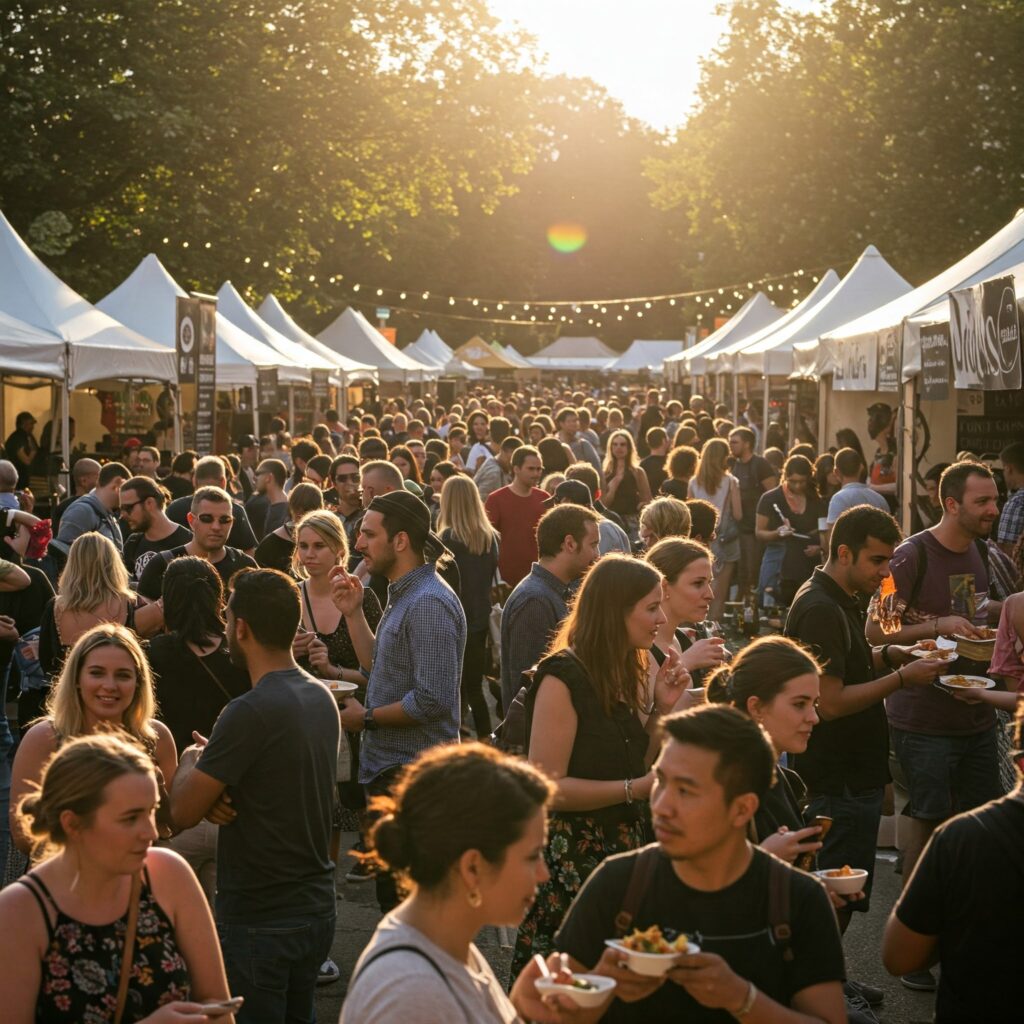Food Festivals: A Celebration of Heritage and Community

Discover the vibrant world of food festivals! Explore local and international events, savor unique cuisines, and indulge in culinary delights. Join the feast!
Trending News Fox, Digital Desk Team, Kolkata
Edited by Saibal Bose
Monday, 31 March 2025
Food Festivals: A Celebration of Heritage and Community
Food has always been more than mere sustenance; it is a profound reflection of cultural identity, history, and community. Across the globe, food festivals serve as vibrant celebrations of culinary traditions.
They bring people together to share flavors, stories, and experiences. These gatherings transcend geographical and social boundaries. These festivals not only preserve and promote local cuisines but also foster cultural exchange and unity among diverse communities.
Preserving Culinary Heritage
One of the most important roles of food festivals is the preservation of culinary heritage. Many traditional dishes and cooking techniques have been passed down through generations. These festivals offer a platform to showcase and sustain them. These events celebrate time-honored recipes.
They include the Oktoberfest in Germany, the Mooncake Festival in China, or the Pizzafest in Italy. They also honor cooking styles that otherwise fade into obscurity. By bringing these traditions to a wider audience, food festivals help to keep cultural legacies alive.
Strengthening Community Bonds
Food has an innate ability to bring people together, and food festivals are a testament to this unifying power. They create a space where families, friends, and even strangers can connect over shared meals. Local farmers, chefs, and artisans also gain from these gatherings.
These events offer opportunities to showcase their skills. They also help gain support from their communities. Festivals like Louisiana’s Crawfish Festival or Thailand’s Songkran Water Festival show how food-centered events can strengthen communal ties. They instill a sense of pride among local populations.
Promoting Cultural Exchange
Food festivals serve as windows into the traditions and histories of different cultures. Attendees can experience new flavors and cooking techniques, broadening their culinary knowledge and appreciation for diverse cuisines. International food festivals attract visitors from around the world.
Festivals like the Melbourne Food and Wine Festival or the Singapore Food Festival are examples. They create a melting pot of tastes and traditions. These events encourage dialogue and appreciation among people of different backgrounds, fostering mutual respect and understanding.
Boosting Tourism and Economy
Many food festivals significantly contribute to local economies by attracting tourists and boosting businesses. Cities and towns promote their culinary scene through these events. They draw in food lovers and travelers.
The Taste of Chicago, for example, generates millions of dollars in revenue and supports local restaurants and vendors. Food festivals inspire culinary innovation. Chefs experiment with new dishes and fusion cuisines. They do this to appeal to a diverse audience.
Encouraging Sustainable Food Practices
In recent years, many food festivals have embraced sustainability by promoting organic, farm-to-table, and zero-waste initiatives. Events like Terra Madre Salone del Gusto in Italy emphasize the importance of ethical food production.
They also focus on local sourcing and environmental consciousness. These festivals educate the public on responsible consumption, highlighting the impact of food choices on the planet and future generations.
Conclusion
Food festivals are more than just indulgent gatherings. They are essential cultural events that celebrate heritage. They foster connections and encourage global understanding. As societies continue to evolve, these festivals will be crucial.
They will preserve culinary traditions while also adapting to modern challenges. Food festivals remind us that eating is deeply cultural. Whether it’s through sharing a family recipe or discovering a new dish, it is a communal experience.
FAQ
1. What is the purpose of a food festival?
Food festivals aim to celebrate and preserve culinary traditions, promote local food businesses, encourage cultural exchange, and strengthen community bonds.
2. How do food festivals promote cultural exchange?
They introduce attendees to new cuisines, cooking techniques, and traditions from different cultures, fostering appreciation and understanding.
3. What are some famous food festivals around the world?
Popular food festivals include Oktoberfest (Germany), Taste of Chicago (USA), Pizzafest (Italy), Mooncake Festival (China), and Singapore Food Festival.
4. How do food festivals impact local economies?
They attract tourists. These events generate revenue for local businesses. They offer a platform for small vendors and chefs to showcase their work.
5. Are food festivals environmentally friendly?
Many food festivals are adopting sustainable practices. These include zero-waste policies, local sourcing, and farm-to-table initiatives. These measures help to reduce their environmental impact.
Tags
#FoodFestivals #CulinaryHeritage #CulturalExchange #LocalCuisine #FoodCulture #CommunityEvents #SustainableFood #Gastronomy #Tourism #FoodLovers
Discover more from Trending News Fox
Subscribe to get the latest posts sent to your email.




